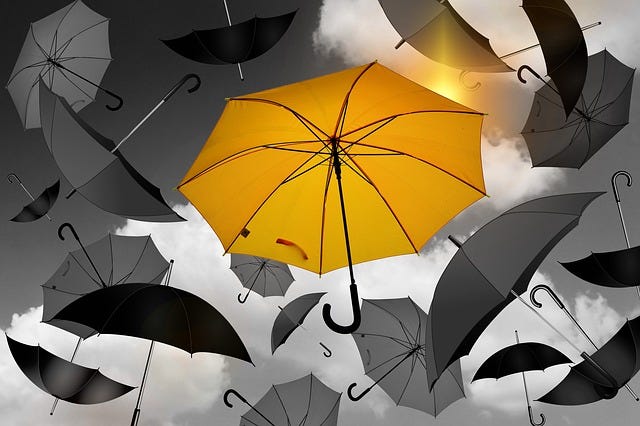I just read an article in The New York Times about Finland, which ranks as the happiest country in the world. Ironically, the article features interviews with residents of Finland who offer sometimes gloomy insights about the level of happiness they experience or witness.
The take-away for me, though, is this quote at the top of the story:
Finns derive satisfaction from leading sustainable lives and perceive financial success as being able to identify and meet basic needs, Arto O. Salonen, a professor at the University of Eastern Finland who has researched well-being in Finnish society, explained. “In other words,” he wrote in an email, “when you know what is enough, you are happy.”
I often explore the concept of “enough” during a caregiving experience. We worry we don’t do enough, we’re not patient enough, we can’t be enough for everyone who needs us. We can be plagued by worries about whether we know enough and have enough for all that’s required during a caregiving experience.
This article gave me pivot from focusing on our internal battle with enough to our external reality that we don’t have enough. If family caregivers don’t have enough support, breaks and resources during their experience, then does that mean they don’t have enough to be happy?
When you don’t have enough money in the bank and bills are way past due, how happy could you be?
When you don’t have enough help which means you can’t resolve challenges or take time for yourself, can you still be happy?
When you don’t have enough resources which means you remain in a constant state of sacrifice, when can you actually feel happy?
What does it say about society that we don’t provide enough support, resources and help for family caregivers to ensure we meet their basic needs?
I recently read about an organization that will be working with celebrities to create awareness of personal caregiving experiences. The idea of turning celebrities into caregiving spokespersons is not a new one. Previous campaigns featuring celebrities have fallen flat. Typically, celebrities have enough — money, resources, support and access. While their own experience includes the difficult emotions we all feel (guilt, worry, grief), I’m not quite sure that a celebrity will experience the same frustration I do when I have to chase down orders that a doctor’s staff doesn’t fax or spend all day in a hospital during a caree’s discharge day organizing a plan that the case manager simply doesn’t have time to do.
A family caregiver brought up this initiative during our conversation last week. She said, “I don’t get this.”
We can’t relate to celebrities. In truth, celebrities may not be able to relate to our reality.
I get that celebrities bring the “sexy” side to the issues, which seems to be a nod to the belief that people only want to engage in content that’s pleasing and comforting. It can be overwhelming to engage in content like another article featured in The New York Times Magazine: The Agony of Putting Your Life on Hold to Care for Your Parents.
But, there’s a huge number of family caregivers the United States. There’s a small percentage of celebrities. What if we hired family caregivers as spokespersons who can share the reality of caregiving because they live it? What if we start to meet the needs of family caregivers by paying them rather than celebrities? If celebrities donate their time to the initiative, wouldn’t it make sense to use the celebrities to raise money to help and support family caregivers? We all know the issues.
We need solutions because we don’t have solutions to give family caregivers enough. I think we all can agree: Enough. We must do better.
I’d love to know: How happy are you?
Resources
Embracing Enough, a free course on Caring Our Way, helps you work through your guilt about not being or doing enough.
I led a discussion on Friday that helped attendees map out their strategy for creating an impact to improve the caregiving experience. Watch the archive of “What’s My Caregiving Impact?”
Our Caregiving Master Class Bundle includes four classes (The Six Caregiving Stages, The Caregiving Fatigues, The 17 Caregiving Systems and The Family Caregiver’s House of Cards) that offer six hours of insights. Enroll for yourself for $179. Want your team to better understand the needs of family caregivers. Enroll your team of five or more for a discount of $149 per team member. Use coupon code SPRING to save 15%.
If you manage caregiving and career responsibilities, register to join us on April 29 for A Morning for Support for Working Family Caregivers.





How happy am I?
Right now, it's a strange little balancing act and almost like I'm walking a tight rope. I started out as a caregiver when I was 14 for my Dad and little brother. It escalated to being Dad's fulltime caregiver back in 2015. My watch ended just a few weeks ago - March 23 - when he passed away.
I'm sad that he's gone and I wish he could have been healed. I love him and always will.
I'm 41 now and I have been asking myself that a lot right now - How can I get happy again? Somewhere along the way, I lost myself and am in the process of figuring out who I am in the world.
So, to answer the question....
I have no idea how happy I am. Not a clue.
Thank you very much for your insights. You've given me much to ponder over.